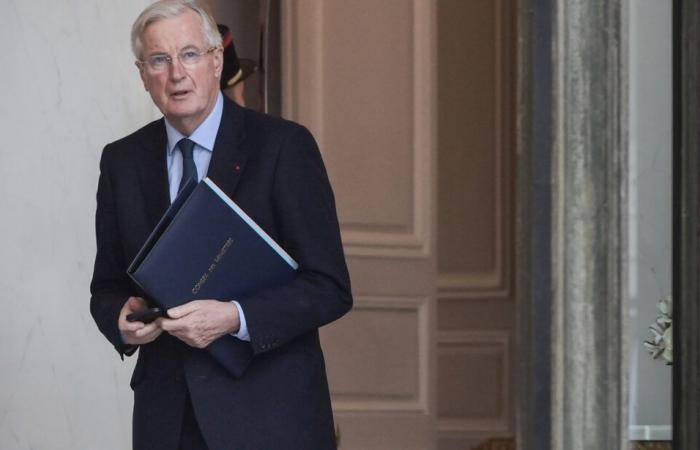Michel Barnier announced this Thursday, November 28, his decision “not to increase taxes on electricity”, but only a third of the surcharge planned for next year will in fact be abandoned. Some households will therefore see the price of their energy increase in February.
The gift turns out to be less attractive than it seemed. This Thursday, November 28, Michel Barnier announced that he was retreating in one of the budget battles for 2025: “ I have decided not to increase taxes on electricity in the finance bill ”, he indicated au Figaro. But the Prime Minister is in fact only going back part of the way.
Later in the day, the Ministry of Finance clarified that taxes will indeed increase next year, to return to their level before the energy crisis. These levies were reduced in 2022 to cushion the surge in prices, before being partially restored at the start of 2024. In 2025, the return to normal should make households pay some 2 billion euros more, according to budget documents. .
READ ALSO: Tax increases: the working and middle classes ultimately affected… via their electricity bill?
In reality, the government is “only” giving up on pushing the cursor even further: in its initial project, it had planned to raise taxes beyond their pre-crisis level, in order to take an additional billion euros on household bills. In other words, only a third of the surcharge initially planned is canceled.
Consumers may also have been deceived by the reactions of the National Rally (RN), which had made the electricity surcharge a “ red line » justifying government censorship. This Tuesday, November 26, Jordan Bardella proclaimed on that his party “ [venait] to achieve a victory by obtaining from Michel Barnier the cancellation of the 3 billion euro tax on electricity “. However, only part of this sum was therefore returned to households, while the RN had demanded the complete cancellation of the increase.
Surcharge not always compensated
The Prime Minister's statements were equally equivocal as to the impact to be expected on the bills. Near the Figarohe asserted that his concession “ will allow a reduction in electricity prices of 14%, which will therefore go well beyond the 9% reduction initially planned “. Here again, the Prime Minister refrains from specifying that only a portion of consumers will see the color of this.
READ ALSO: Increase in the price of electricity: EDF's tariff too expensive compared to production costs?
For EDF “blue tariff” customers, the increase in taxes will be more than offset by a reduction in the cost of electricity. The latter is set by the Energy Regulatory Commission (CRE), using a formula based on market prices over the last two years.
Next February, this calculation will stop taking into account the year 2022, during which prices reached peaks. Enough to allow the 14% inflection promised by Michel Barnier, despite the planned increase in taxation. Currently, energy supplied via the blue tariff is encrypted at around 130 euros per MWh, i.e. well above the cost of producing French electricity.
Conversely, customers of market offers have already been able to benefit from the fall in prices, which accelerated from the end of 2023. The cost of their energy is not expected to fall further in February: In the absence of this counterbalance, the increase in taxes will therefore increase their bill. In this case are households which are neither subscribed to the regulated tariff nor to an offer indexed to it. Or at least 24% of households, according to figures transmitted by the CRE at Liberation. Can they console themselves by seeing it as a simple return of the pendulum?






